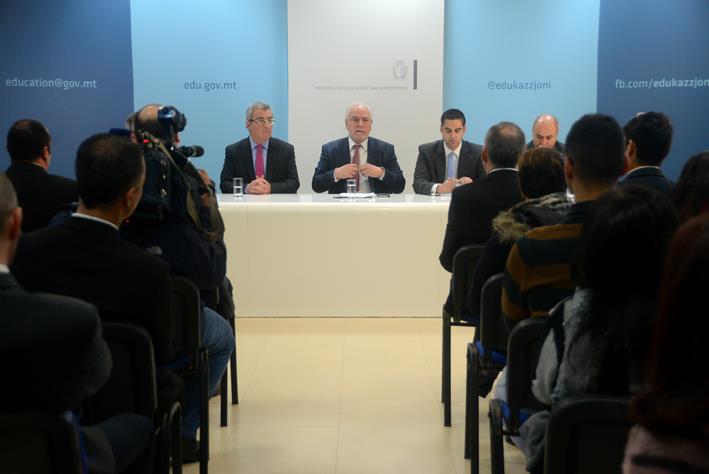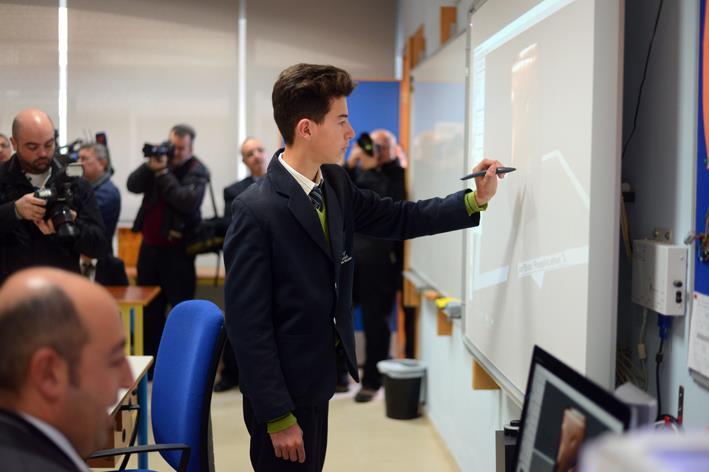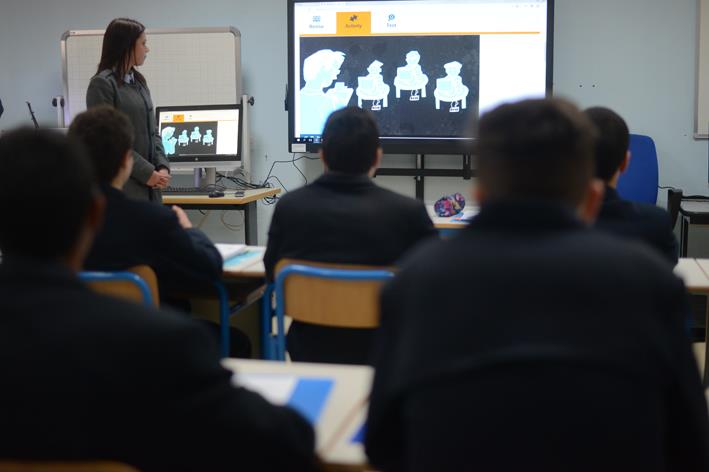Investment into new equipment and infrastructure, costing some €15.4 million, was launched this morning at the Kulleg Maria Regina boys’ secondary school in Mosta.
€12 million will be paid for using EU funds while the rest will be paid for using tax payers’ money. Deputy Prime Minister said that the €12 million in EU funds had been part of the 25% of the investment for the Coast Road, which had been reassigned after a financial correction.

He stressed that the money has not been lost through this re-negotiation, but has been diverted to a highly important sector. He concluded that there is agreement with the European Commission, and that all requirements are in line.
3D printers and scanners, all-in-one systems, new laptops which will be available to teachers, LSAs and kindergarten assistants, and improved technological infrastructure will all be made available through the investment project.
Project coordinator, Joe Mamo, said that the laptops alone cost some €7 million.
“Due to the increased use of tablets and other technology, new equipment is essential for making the best use of what we have available, which will ultimately improve the educational experience of the students,” Mr Mamo added.
Education Minister Evarist Bartolo spoke about one of the biggest challenges teachers are experiencing currently. He said that a number of teachers have complained that due to the slow and inefficient technology available, many are wasting time in classrooms. He said that the current situation is hindering learning and is counterproductive.

He also spoke about a situation where students are being challenged, and finding more stimulation outside of school thanks to what is available on the internet. He therefore explained that the investment had also gone into 3D printers and scanners to help correct this situation, and allow them to design and create objects which allow them to see their ideas turn into a reality. He added that this technology will leave them better equipped for future industry developments.
Parliamentary Secretary for economic growth José Herrera spoke of the infrastructure and connectivity required to facilitate the use of new technologies. He said that bringing in improved technology is being wasted without the necessary infrastructure to complement it.

Deputy Prime minister Louis Grech spoke of the gap between what is being learnt at school and what is expected in the working world. He said that this is a huge challenge, adding that “one cannot teach for the future with yesterday’s tools.”
He also said that if the technology is used properly, the teachers and the students’ roles will change. He said that teachers can better prepare for their lessons, wasting less time and being more overall efficient. He said that the students will be able to interact more with the subject they are studying and the teachers they are learning from.
Photographs by Jonathan Borg